Search
Did you mean: Xois?
Search Results

Interview
Interview: When Money Talks by Frank Holt
Join World History Encyclopedia as they talk to Frank Holt about his new book When Money Talks: A History of Coins and Numismatics published by Oxford University Press. Kelly (WHE): Thank you so much for joining me today. Do you want to...
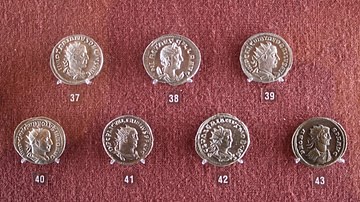
Definition
Roman Coinage
Roman coins were first produced in the late 4th century BCE in Italy and continued to be minted for another eight centuries across the empire. Denominations and values more or less constantly changed but certain types such as the sestertii...
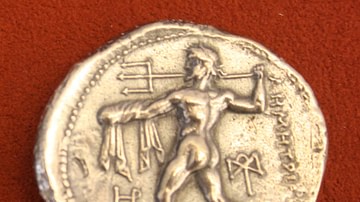
Image Gallery
A Gallery of 40 Coins Through History
Coins have been in use since their creation in ancient Lydia in the early 6th century BCE. Stamped by the state to guarantee value and be recognisable as genuine, coins allowed goods and services to be bought without the necessity of barter...
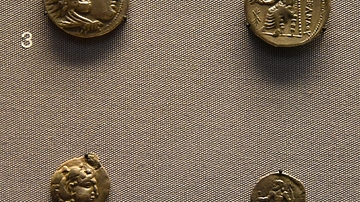
Image
Coins from Macedonia and Sogdia Copying Alexander's Coinage
The State of Sogdia was conquered by the army of Alexander the Great in 327 BCE. The early coins from Sogdia copy the coins of Alexander's Empire, telling us that they were issued after the conquest. Comparisons like this allow ancient coins...
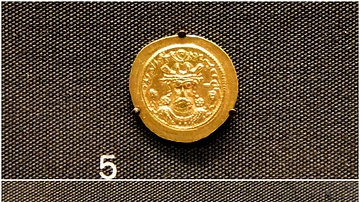
Image
Coins of Kosrau I
These coins show the Sassanian "King of Kings" Kosrau I (aka Khosrow I), reigned 531-579 CE. He wears and holds a royal headband (diadem) as a symbol of kingship. Elements of earlier coins, such as the star and moon, are also incorporated...
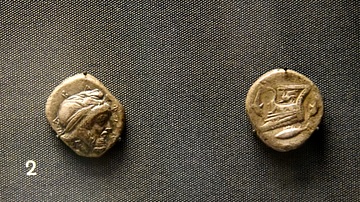
Image
Coins Depicting a Persian Satrap
In the Persian Empire, some regional governors (satraps) were authorized to issue coins for military purposes. They combine Persian and Greek imagery, showing a strap's head and a local reverse image. These are some of the earliest coin portraits...
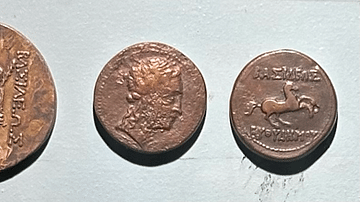
Image
Coins of Euthydemus II
Coins of Euthydemus II, early 2nd century BCE.
Peshawar Museum, Pakistan.
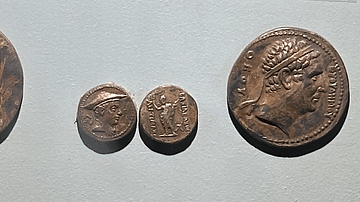
Image
Coins of Antimachus I Theos
Coins of Antimachus I Theos, 185-170 BCE.
Peshawar Museum, Pakistan.
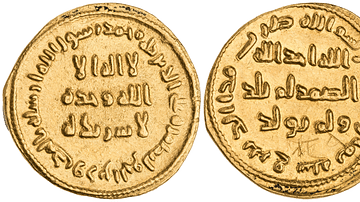
Image
Coins of Abd al-Malik
A gold dinar of Abd al-Malik (r. 685-705 CE) minted in Damascus in 697/98 CE. Abd al-Malik introduced an independent Islamic currency in 693 CE, which initially bore depictions of the caliph before being abandoned for coins solely containing...
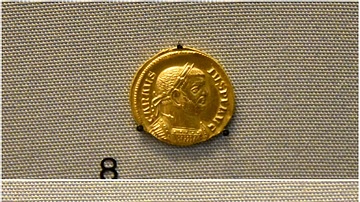
Image
Coins of Carausius
The rebel Carausius (Marcus Aurelius Mausaeus Valerius Carausius) declared himself emperor, making Britain his base. Although he had no authority in Rome, he stressed his Roman identity by citing the poet Virgil on his coins. He also used...